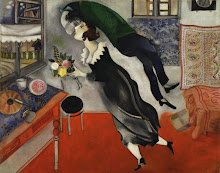So I asked for a baby for Christmas but I didn't get one. Lame. Maybe I'll get one next year?
My husband and I hope one day to be parents (the sooner the better), and I hope one day to be pregnant. In the mean time--although the wait can be extremely tiring and trying--I can be positive. The more you struggle, the more you have empathy for others struggling. I also look forward to being a mom one day so I have more empathy for the mom's in my life too. (Love you girls!)
I have a lot of friends and family members that have kids. I've heard a lot of discussions among them about 'What not to say to a preggo woman,' and I hear a lot of discussion about how people without kids 'just don't understand what it's like to have kids'. There is amazing advocacy out there for new moms and pregnant women, which is awesome cause they completely deserve it! I'd like to start a conversation about advocacy for people without kids, and who can't have families the conventional way, or as quickly as others. There aren't as many of us, so maybe this type of advocacy isn't given as much thought. So while I am careful about what I say around moms or pregnant women, I'd also like to call for similar courtesy towards us non-moms.
So here's a list of what not to say to women who don't have kids, and who aren't pregnant (No exaggeration, these are real life things that have been said to me and my friends who are struggling to have families.)
1. It's your turn to be pregnant! (said by a preggo woman to a friend of mine struggling to have children).
2. Holidays must really suck without kids. I would be so bored on holidays, if I didn't have kids, like you guys.
3. Being a mom is so awesome, you should really give it a try.
4. Why haven't you had kids yet? You must not be into the kid thing?
5. What is taking you so long to start a family?
6. You just really don't get what it's like to be a mom. You have no idea, being a mom is seriously the best thing ever.
Just some thoughts. This isn't a bitter post. Seriously, there are no hard feelings. I know most people have really good intentions. I just wanted to raise some awareness. And most importantly I'd like to thank all the wonderful people in my life that hug me when I'm sad about not having a family, and are always sensitive and supportive as we try to start our own family. I feel blessed to have so many supportive people around me!
Thursday, December 24, 2009
Saturday, December 19, 2009
Health Care: What the?

I'm interested to know what y'all think about the health care reform that is currently taking place. Also, how do you feel about our health care system in general? Please comment and let me know! This should not be a partisan issue; it should be about relieving people's suffering.
In light of current health care reform taking place, I read this really great book The Healing of America: A Global Quest for Better, Cheaper, and Fairer Health Care, by T.R. Reid. I loved this book! The author travels around the world to see how other developed countries manage health care. He discusses what is and isn't working in other systems and then explains ways in which we can incorporate aspects of other successful systems into our own (without completely revamping the current system). Here are some of the strengths of the other systems that I found interesting.
1. England gives incentives to doctors that keep their patients healthy. In the UK "the greatest boon to...almost every other British general practitioner, has been an experimental payment called the Index of Quality Indicators. It's an effort to pay for results--to give a doctor more money if he treats his patient successfully and keep them healthy..."(122-123) This is a wonderful way of marketizing preventative medicine.
...modern epidemiological studies make it clear that preventative medicine--the discipline sometimes called public health--trumps individual treatment as a means for keeping large numbers of people healthy, wealthy, and wise...at a time when national health care budgets are stretched to the last penny just caring for the sick, it can be hard to find additional money for preventative treatment of those who are healthy. This means the health system needs a strong incentive--an economic incentive--to invest in preventative health care. Of course, governments invest in preventative care out of basic altruism; it is government's job, after all, to protect people. But it helps considerably if there is an economic motivation--an incentive structure that encourages the system to invest in prevention. Public health costs money--billions of dollars per year in the major economies--and the return on that spending may not be seen for years or decades. To get serious preventative care, therefore, you need an incentive structure that encourages long-term investment. This is where the national health system comes in. In a nation with a unified health system that covers everybody--which is to say, all the industrialized democracies of the world except the USA--it clearly benefits both the population and the system to invest in public health. But in a fragmented, multifaceted-system nation like the United States, the economic incentives for preventative care are dissipated. With numerous systems and payers, the temptations is to shift the expense of preventative care to somebody else. (185-186)2. In France they save insane amounts of money by using digitialized records. "This carte vitale (green plastic credit card)...contains the patient's entire medical record, back to 1998 ...and it is the secret weapon that makes French medical care so much more efficient than anything Americans are used to...That's why French doctors and hospitals don't need to maintain file cabinets full of records. It's all digitized. It's all on the card. In addition to the certainty of the process and the resulting peace of mind, this national billing system creates major financial savings...the expensive layer of paper handlers found in every corner of American medicine doesn't exist in France." (57-59)
3. Many of these countries have privatized doctors and hospitals, but they use not-for-profit insurance companies that compete for prestige. So for example, "...on a national level, Germany offers universal care through private insurance that is available to everybody. The intense rivalry among the sickness funds demonstrates that there can be elements of the competitive free market even in a nonprofit health insurance system." (81)
4. Many developed countries subsidize medical school for doctors so they graduate with little or no debt.
I'm grateful in many ways for my own personal health care system struggles (getting denied coverage because of a 'preexisting condition,' getting many claims denied for no reason, etc.) because it opened my eyes to an important cause I can be passionate about! I only wish I had been an activist in this cause long before it became personal. Most of us think it won't happen to us, and we may be critical of others suffering through it, until us "hard working, healthy, educated people" get sick and lose coverage.
People who are uninsured are 25% more likely to die of treatable diseases than people of the same age cohort who have insurance...the Institute of Medicine concluded that 18,314 Americans die each year because they don't have health insurance and thus can't get the treatment that would save their lives...by 2009, there were some 45 million Americans who spent at least part of the year without health coverage. The Americans who suffer and die are not, for the most part, homeless or addicted or desperately poor. Most of those who die for lack of medical treatment in the world's richest country are working Americans who run afoul of the nation's complicated and restrictive health insurance labyrinth, both public and private. (208-209)I've learned that there is no perfect health care system. I know we can learn from other successful developed nations and strengthen the weak links in our own system. Most developed nations successfully provide care for their citizens with privatized doctors and hospitals; yet the needy or struggling are still cared for. There are very few developed countries that implement true socialized medicine principles; yet like I said, everyone gets care.
All the [developed] countries like us have already made the essential moral decision--every person shall have access to a doctor when needed--and all of them have developed mechanisms to make that guarantee a reality... all the other rich countries provide high-quality, universal care, and yet they spend far less than the United states does. (162)
When pollsters ask the basic question--"Do you think everybody has a right to medical care when they get sick?"--More than 85 percent of Americans answer that health care is a basic human right. And yet our nation does not provide it. The result is that the world's richest nation allows twenty-two thousand of its people to die each year from treatable diseases. (217)D. Todd Christofferson said that "Throughout history, the Lord has measured societies by how well they cared for the poor" (read the rest of the address here). It's important that we remember those that are poor in regards to health care, and it's essential that we take a stand for them.
Subscribe to:
Posts (Atom)






